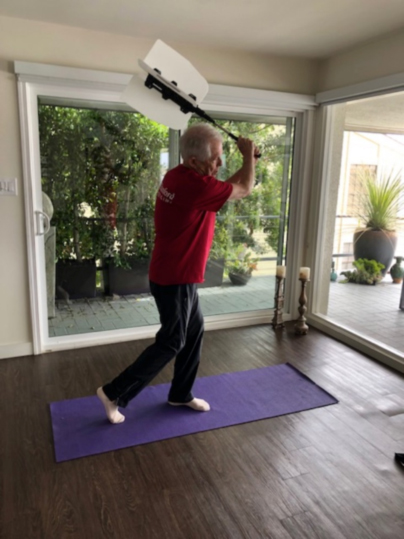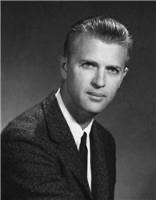
When I’m asked about what makes a good mentor to help others build a thriving business, I often think of the traditional method of teaching that surgeons use. It’s known as “Watch One, Do One, Teach One.” It’s really just a catchy phrase for a basic principle of adult learning, but it’s a good one to remember, especially if you want to be a mentor who matters.
Real learning is found here
Have you ever felt that you have an easier time learning something new when you are actively involved in the process – either mentally or physically – or when you have to explain it to someone else rather than when you simply watch someone else?
If so, your feeling is spot on.
Adult learning experts know people are more likely to learn (and remember) if their learning is “hands on” or if they need to explain it to someone else.
Want to learn to play golf? Don’t just watch, get out there and practice (and help others as you become better). Want to improve your nutrition knowledge? Don’t just read about it, eat more nutritious foods and teach others to do the same.
It’s really no different if you want to build a business in health and wellness. Yes, you can inspire others with your own healthy living, but you will be a better mentor when you teach others through active learning.
A special twist on active learning
One of my mentors, Dr. Alexander (“Alex”) Nichols, put his own special twist on this tried-and-true method of teaching. By doing so, he helped me build a solid scientific foundation and helped me appreciate the importance of living a life of purposeful work, yet still take time to play.
Most importantly, Alex inspired me to find my passion for health and wellness, a passion that continues to guide my life and career today.

The excitement of active learning
I first met Alex at UC Berkeley in the early 1960s when I was working on my doctorate. Alex was a top investigator for Dr. John Gofman, a respected medical physics professor. (I’ve written about Dr. Gofman and his powerful influence on my life in another post.
When I arrived at Berkeley, I was assigned to Alex’s lab as a research assistant. We were trying to figure out how to isolate and measure specific blood lipids and understand their role in heart disease.
Of course, today blood lipids like high LDL-cholesterol or low HDL-cholesterol are well known risk factors for artery-clogging heart disease. But back then, this was a big black box of unknowns with only the possibility of discovery.
Yet, if anyone was up for the challenge, it was Alex.
Alex had a big, well-equipped lab that housed six giant (and expensive) analytical ultracentrifuges. Plus, all six machines were devoted to isolating and researching blood lipoproteins. This was a big deal because it meant we could make rapid progress with our research.
You see, I came from Stanford where the entire school shared one single analytical ultracentrifuge. One. In order to use it, a researcher had to schedule time. Sounds easy enough, but there was a serious obstacle: You could only book one hour a day. Needless to say, it was frustrating.
So off I went to Berkeley where the medical physics researchers put my chemical engineering degree and knowledge of ultracentrifugation to good use. I was excited about the work and even more excited about the progress we could make armed with those six wonderful ultracentrifuges.

Building a solid scientific foundation
I spent a great amount of time working alongside Alex. I credit him with teaching me the scientific method – how to properly design studies, how to evaluate data correctly, how to write papers – and the whole scientific process.
He was an exceptional teacher, and a big fan of active learning. While most graduate students and research assistants just follow directions and do small things, I was able to coauthor three papers that were published in respected journals. To say I was lucky is an understatement; most graduate students never get that opportunity.
Teaching prevention and seeing real rewards
I credit my time with Alex with my ability to develop a deeper understanding that prevention, rather than drugs, is our best answer to most of the world’s health problems.
What really solidified this belief for me was watching patients get better. They were able to manage their blood lipids, shed excess weight and improve their over health, all by eating better. It was gratifying to know that I played a role, however small, in helping them reclaim a passion for living.
I was more convinced than ever: To live your best life, diet and lifestyle matter, and they matter in a big way. It’s a concept that is as true today as it was back then, arguably more so. Heart disease and stroke are still the world’s biggest killers and have been for the last 15 years, according to the World Health Organization. Yet, much of this tragedy could be prevented by embracing a healthy diet and lifestyle.

Experience work-play balance
Alex also made sure we experienced plenty of balance between work and play. Our research was tough work and we were serious about it, but we were just as serious about taking breaks.
Sure, if we had an important project going on in the lab, it was not unusual for us to stay with the project for 12 to 18 hours, even longer, to complete it. But it wasn’t unusual for us to head to the gym for a quick workout or squeeze in a game of volleyball during the workday.
Those breaks not only energized us, but also inspired many conversations about the majesty of science and how it might help the world to be a better place.
Guiding my future
After five years at Berkeley (some of the best years of my academic life), I earned my PhD in biophysics in 1964. It was time to decide on my next step.
Thanks to Alex and his guidance, I began my lifelong journey to take the Nutrilite™ brand around the world and help people experience a passion for living that only optimal health can provide.
Alex passed away a few years ago at the age of 90. I have no doubt over the years his mentorship influenced countless careers. I’ll be forever grateful that mine was one of them.
Imagine the good you can do by being a mentor who matters.
Cheers,
![]()
P.S. Don’t forget to subscribe to our RSS feed and have blog posts delivered right to your inbox.
